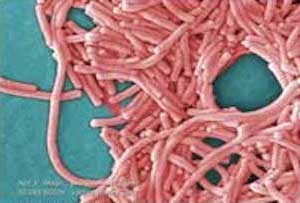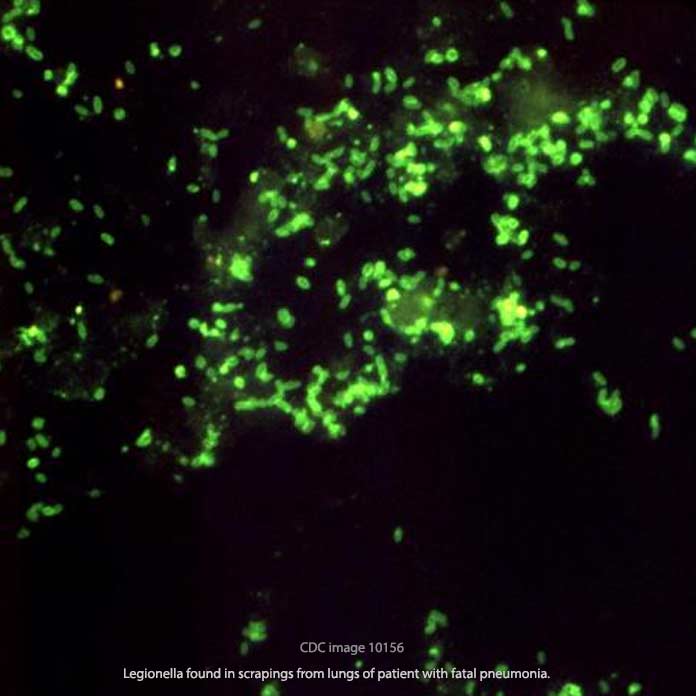Cases of Legionniares’ disease pneumonia have been associated with Del Tura Golf & Country Club, a 55+ senior community in Fort Myers, Florida. The hot tub at the north pool may be the source of at least 2 cases of Legionnaires’ disease, which is caused by breathing in water contaminated with Legionella bacteria.

At least two people living at Del Tura Golf & Country Club have contracted Legionnaires’ disease, a severe pneumonia that can be deadly to senior citizens, smokers, or to individuals with underlying COPD, lung disease, cancer, or compromised immune systems.
According to one news report, when one of the victims was too weak to get out of bed on January 7th, her neighbors rushed her to Lee Memorial Hospital, where she would spend two and a half weeks in the intensive care unit. She survived, but faces a lengthy future of therapy because of the lung damage she sustained from the disease.
The day after she was admitted to the hospital, Lee County Health Department alerted Del Tura Country Club officials of the outbreak. When the community’s hot tub, which the victim had used twice a day, was tested for Legionella bacteria on January 13th, the results were negative at that time.
The Lee County Health Department has assured the public that they are not at risk for contracting Legionnaires’ Disease.
What Happens if you Survive Legionnaires’ Disease
When Legionnaires’ disease is contracted in a community environment such as a public hot tub, it is fatal in 5 to 30% of cases (this percentage increases to over 50% when it is caught by patients in healthcare environments). But even if you survive the initial infection, you are likely to face an extended period of medical and aftercare costs (amounting to tens of thousands of dollars), loss of work, and continuing pain and suffering.
Back in 2002, one research study (Lettinga KD, Clin Infect Dis, July 1, 2002) detailed the secondary medical conditions that prey upon lungs and nervous systems weakened by Legionella pneumonia bacteria. After surveying 112 Legionnaires’ disease survivors, the researchers ascertained that symptoms such as headache, memory loss, concentration problems, muscle weakness and / or pain, and serious respiratory issues often lingered for more than a year and a half after patients were released from the hospital.
